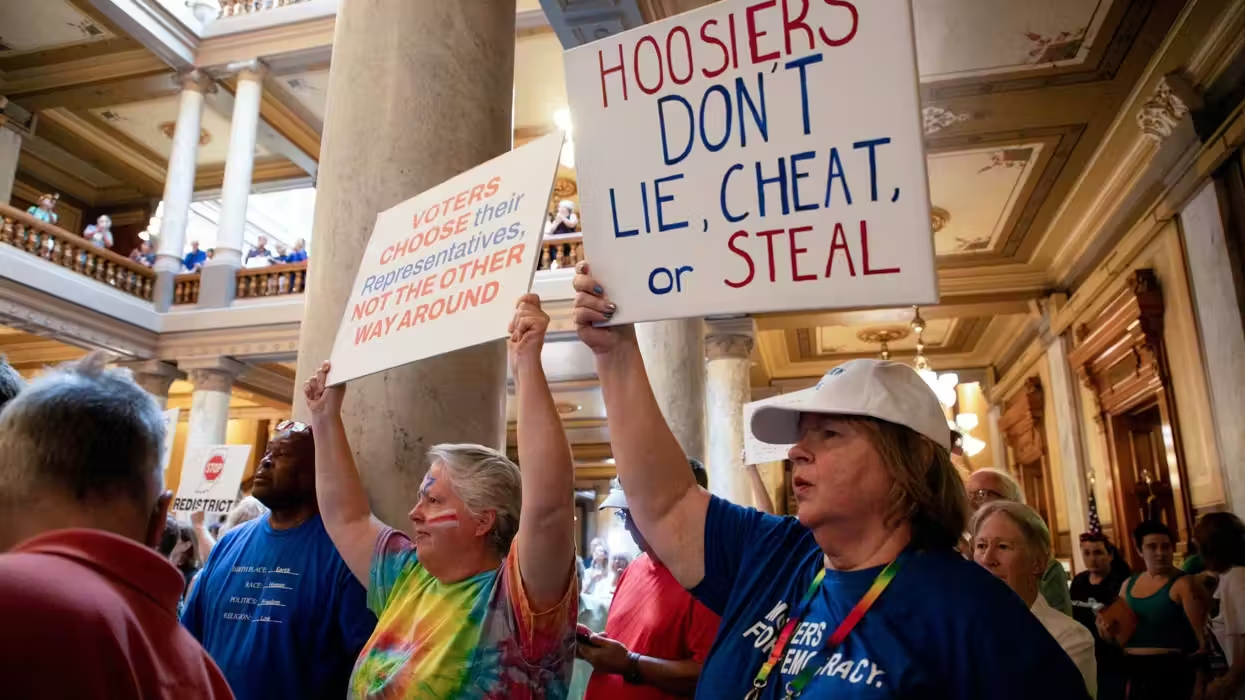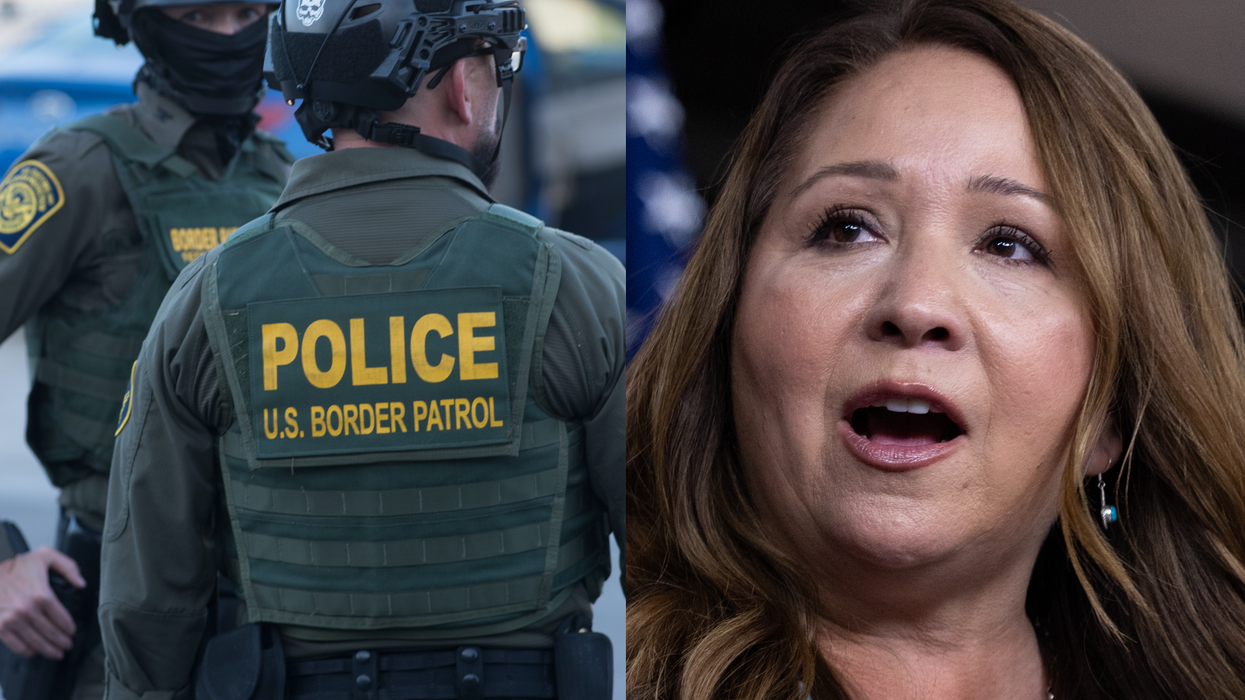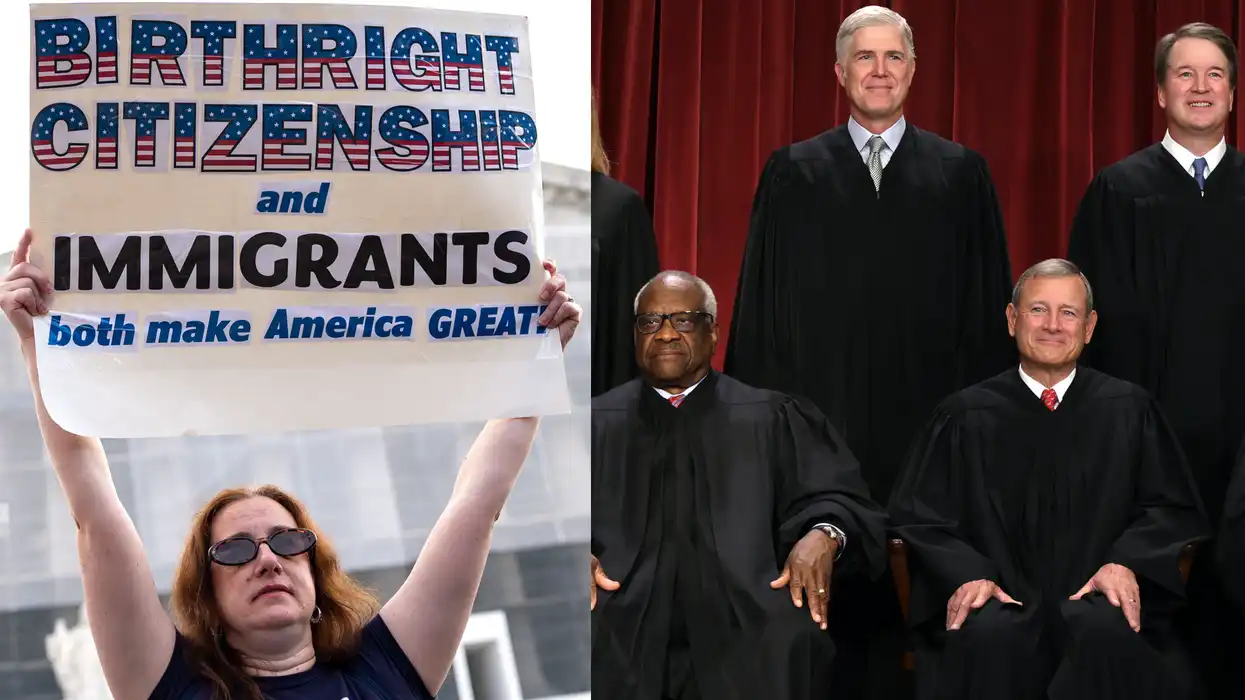
© 2025 Blaze Media LLC. All rights reserved.
White House issues least-threatening veto 'threat' ever on Keystone
November 18, 2014
The White House on Tuesday indicated that President Barack Obama would veto legislation to approve the Keystone XL pipeline, but did so in a way that doesn't quite constitute a veto "threat."
Instead, White House spokesman Josh Earnest was forced to describe the possibility of a veto in the most non-threatening way possible — by stressing over and over again that Obama simply doesn't like the bill, and has made veto threats before on these sorts of bills.
 White House spokesman Josh Earnest 'threatened' that the White House would veto the Keystone bill, but it wasn't much of a threat.
White House spokesman Josh Earnest 'threatened' that the White House would veto the Keystone bill, but it wasn't much of a threat.
Image: AP Photo/Jacquelyn Martin
Earnest's verbal antics appeared designed to avoid headlines that say Obama would veto the bill just hours before the Senate votes on it, perhaps to give more pause to Democrats who might be considering a "yes" vote. Earnest also said the White House had no plans to put out a formal statement on the bill, one that might normally include the word "veto."
At the daily White House briefing, Earnest was asked directly whether Obama would veto the bill. But he dodged that simple question completely in an answer that managed to stretch out for more than 150 words.
"Consistent with past practice, the State Department has a method of reviewing these kinds of projects that span our international borders, he said.
"That means that the State Department can a review that includes a wide range of considerations, including, at the president's direction, the consideration about whether or not this particular project would substantially contribute to carbon pollution and the impacts of climate change," he added.
"So there is a process that is underway that is currently going through its regular course. This is complicated at least a little by ongoing court proceedings in the state of Nebraska, as it relates to the route of the pipeline in Nebraska," he said before finally winding up.
"But there is a process underway, and the president is confident that that process will carefully evaluate the consequences of this specific proposal, and that that's the proper way for a decision like this to be made," Earnest concluded.
That answer left one reporter wondering, "So that's a yes?"
"It is an answer to the president's view that the State Department is the proper venue for reaching this determination," he said.
Later, Earnest was asked why he was working so hard to avoid the word "veto" in his answer, and asked if the White House might be leaving open the door to signing the bill into law. That's when the soft veto "threat" became most clear.
"I don't want to leave you with that impression," Earnest said. "It certainly is a piece of legislation that the president doesn't support because the president believes that this is something that should be determined through the State Department and the regular process that is in place to evaluate projects like this."
Earnest also noted that "there are similar pieces of legislation that have been introduced in this Congress where the president's senior advisers have recommended a veto."
The Senate will vote on the bill Tuesday evening. Sixty votes are needed for its passage, which means at least 15 Democrats and Independents are needed to pass it.
Want to leave a tip?
We answer to you. Help keep our content free of advertisers and big tech censorship by leaving a tip today.
Want to join the conversation?
Already a subscriber?
more stories
Sign up for the Blaze newsletter
By signing up, you agree to our Privacy Policy and Terms of Use, and agree to receive content that may sometimes include advertisements. You may opt out at any time.
Related Content
© 2025 Blaze Media LLC. All rights reserved.
Get the stories that matter most delivered directly to your inbox.
By signing up, you agree to our Privacy Policy and Terms of Use, and agree to receive content that may sometimes include advertisements. You may opt out at any time.






